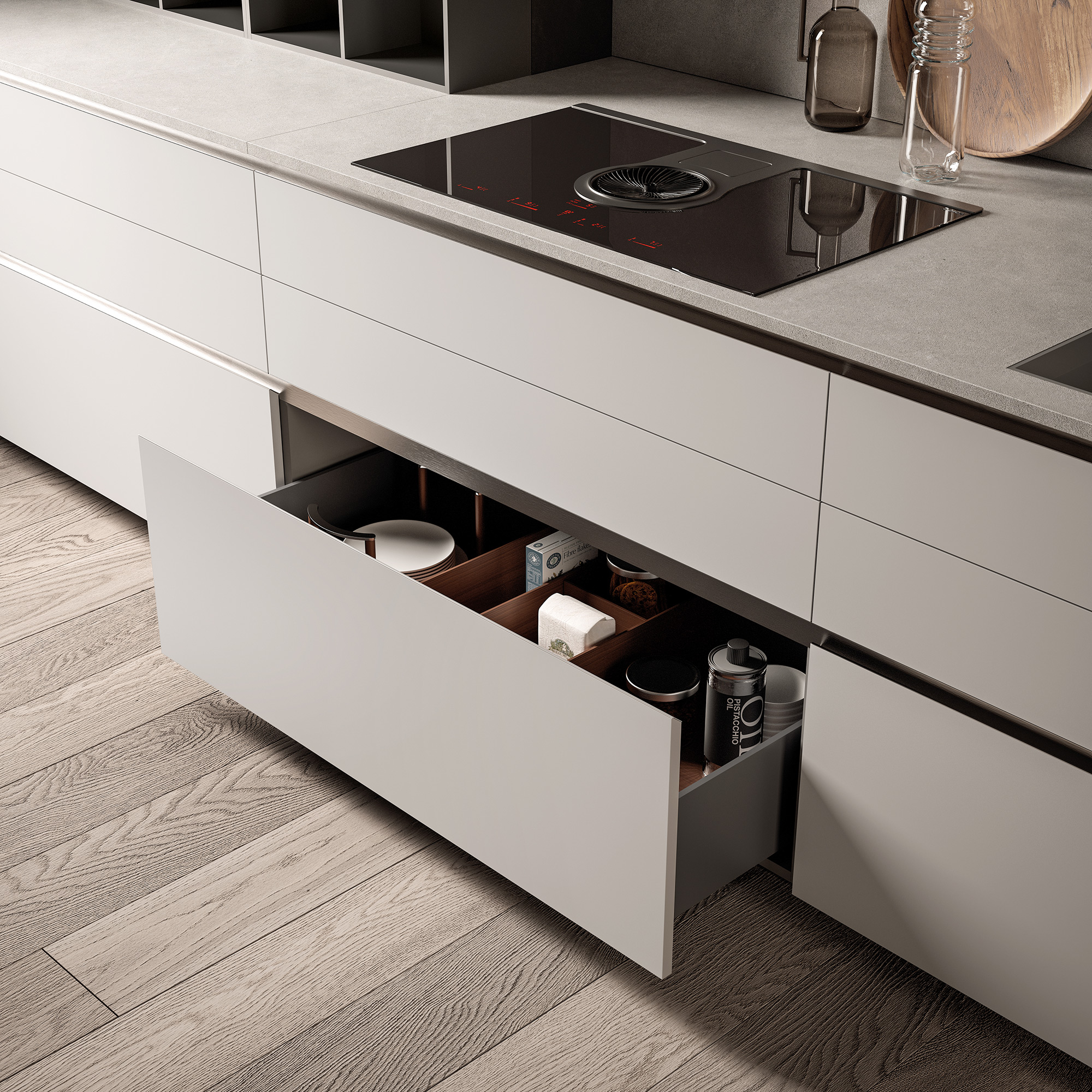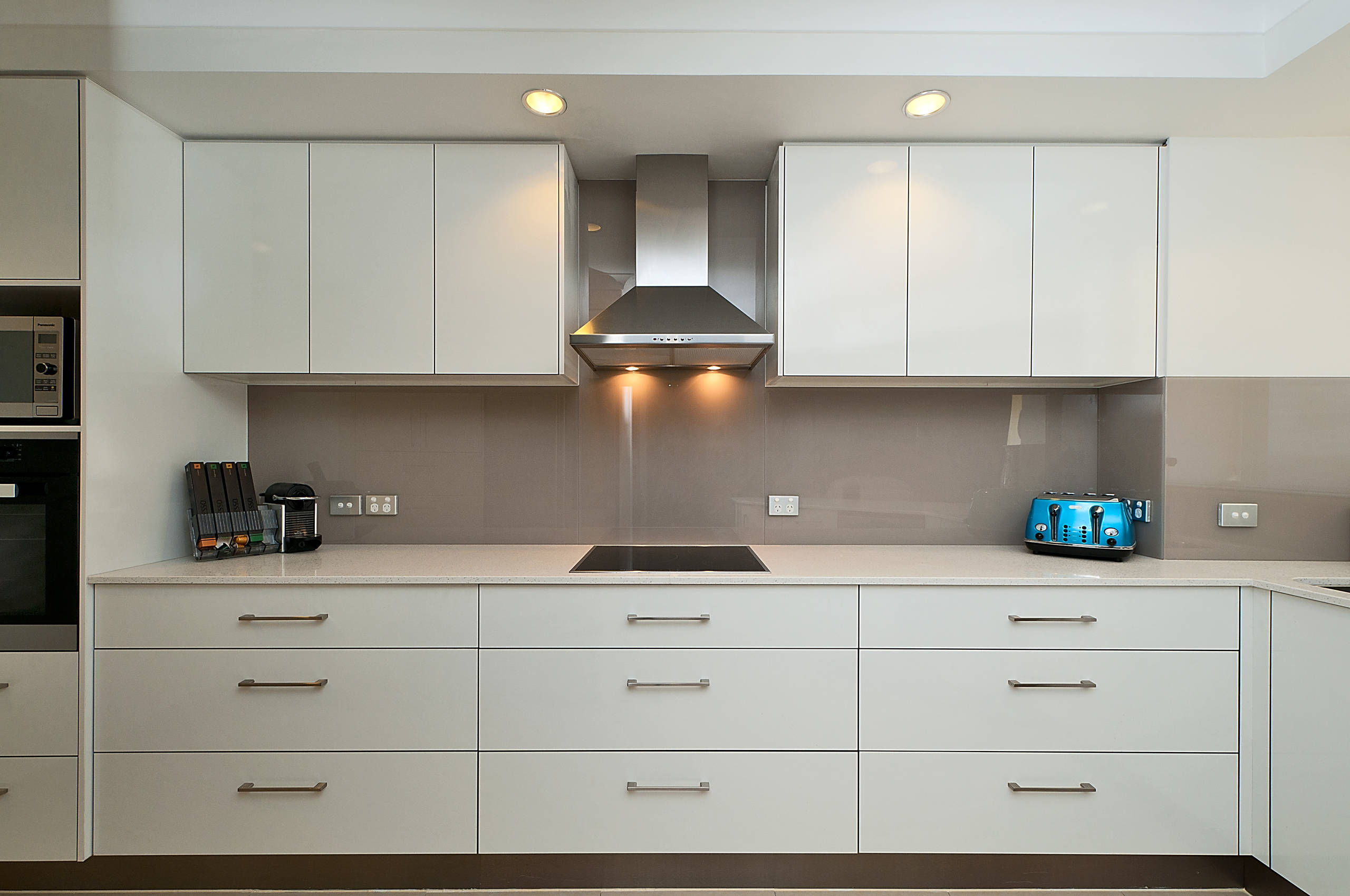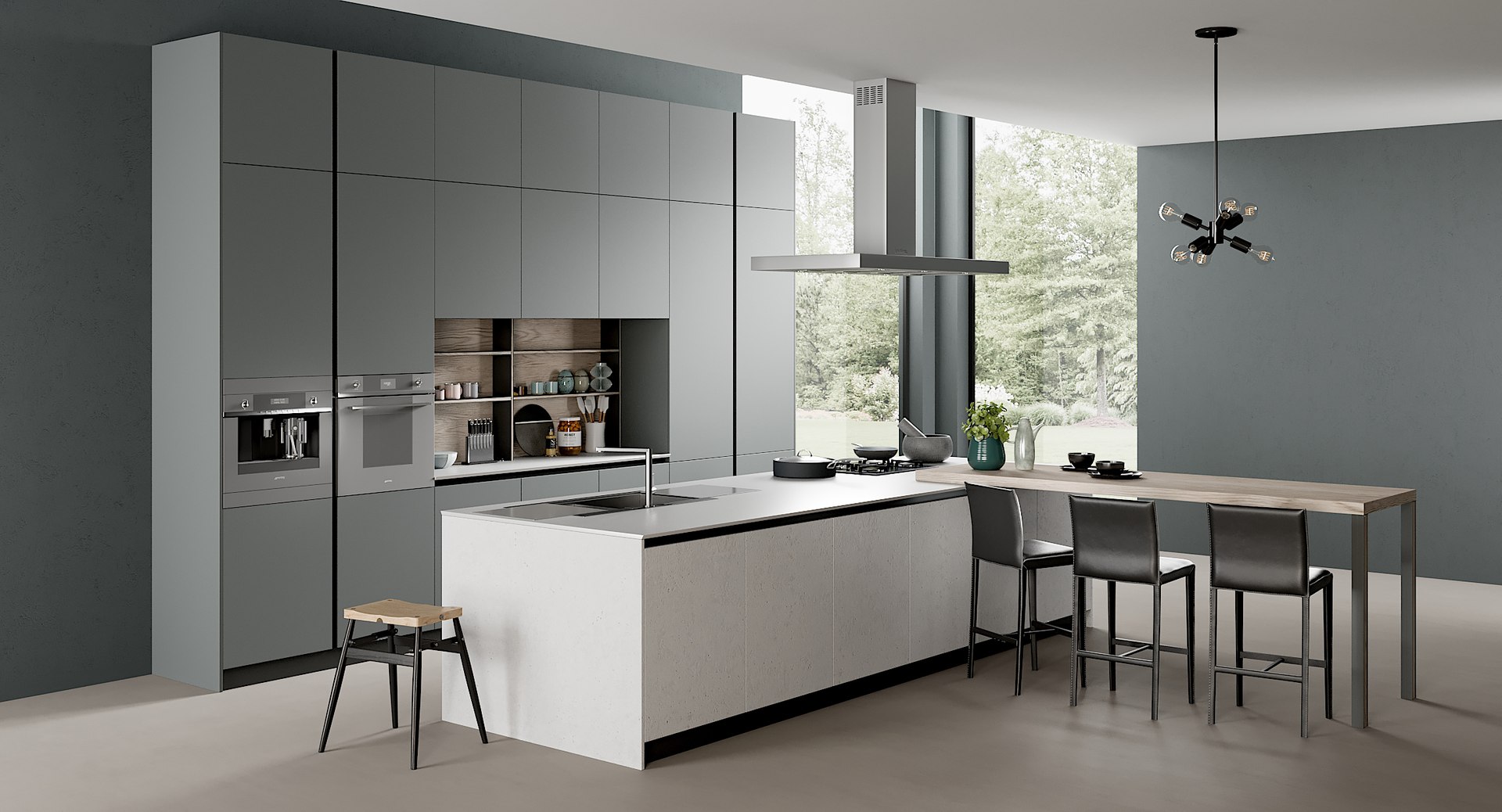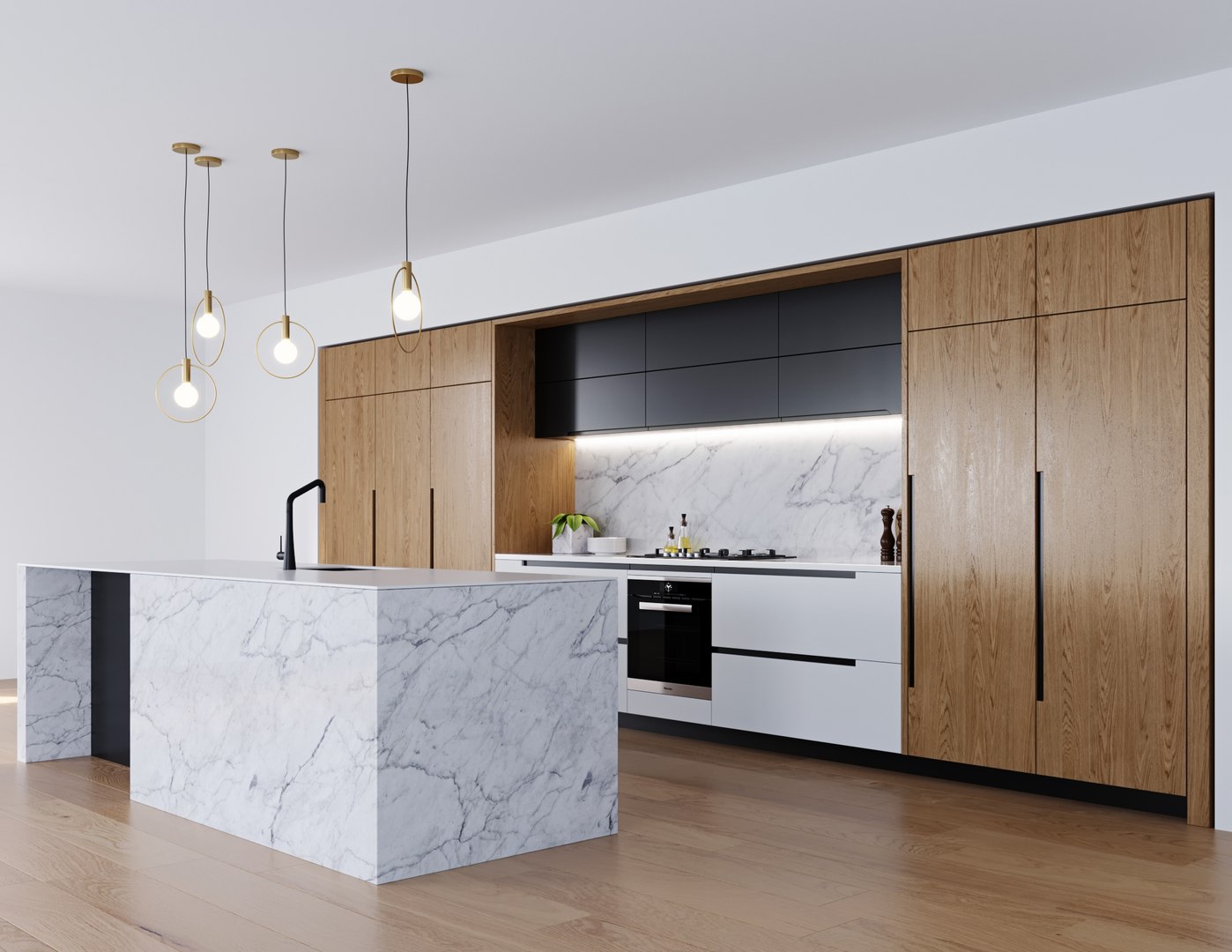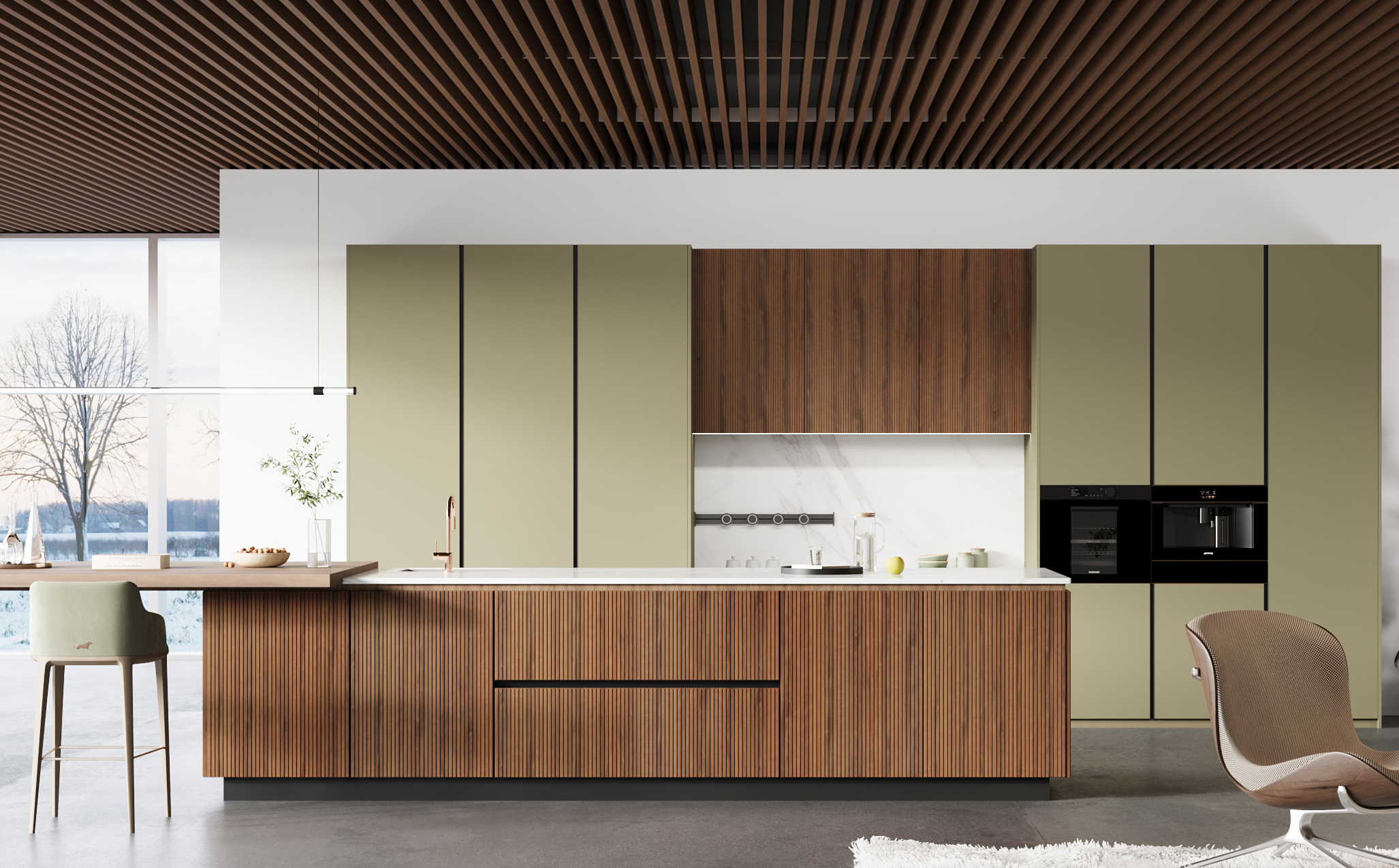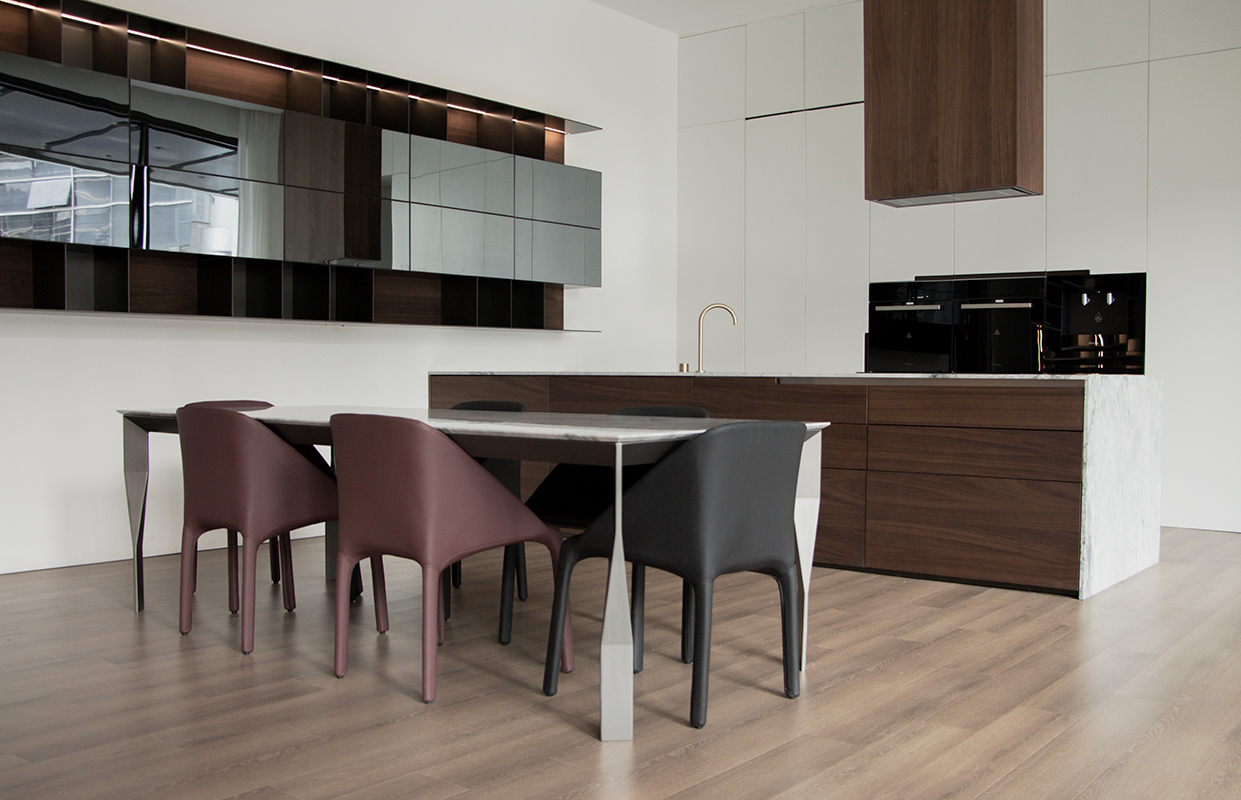Kitchen cabinet hardware is no longer just a functional component; it plays a critical role in the usability, durability, and aesthetic appeal of modern kitchens. As kitchen design standards evolve, innovations in materials, functionality, and appearance have become essential, making hardware selection a key factor in overall kitchen quality.
For industry professionals overseeing large-scale kitchen projects, choosing the right kitchen cabinet hardware not only ensures installation efficiency and long-term maintenance cost savings but also directly impacts user experience and project value.
This article provides a comprehensive analysis of kitchen cabinet hardware trends, material choices, functional innovations, and future directions to guide effective project selection.
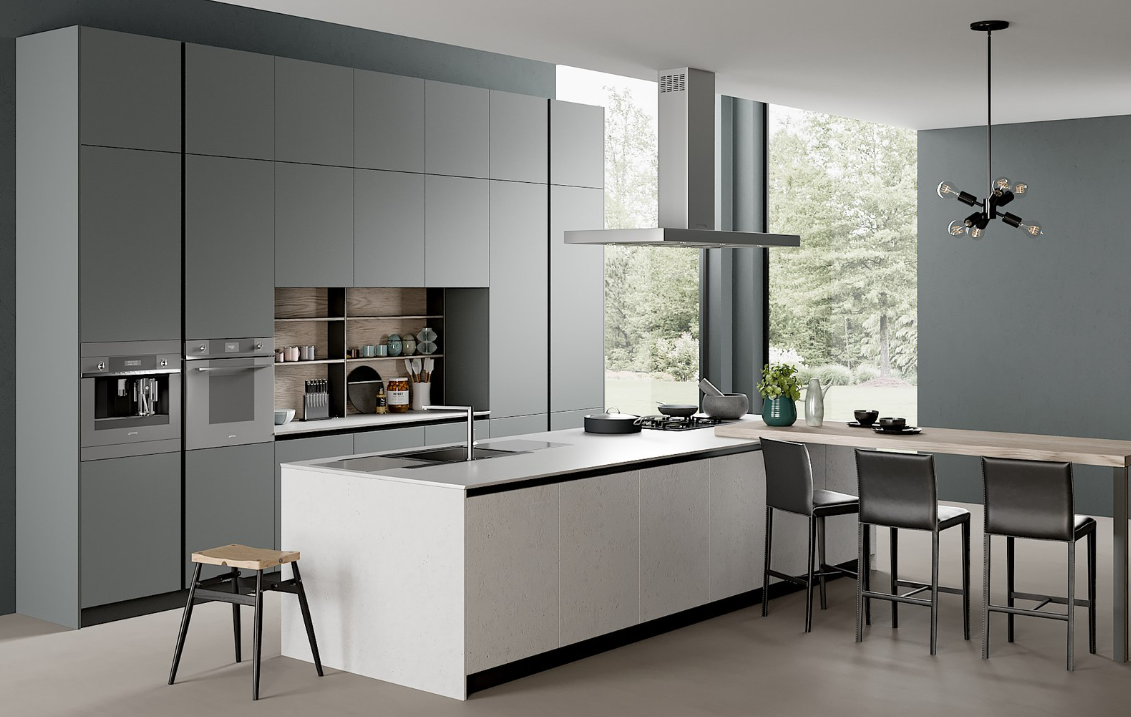
Kitchen Cabinet Hardware Design Trends
1. Aesthetic Design Trends
Modern kitchen projects increasingly demand hardware that complements the overall design rather than serving merely functional purposes.
- Minimalist Linear Handles and Concealed Pulls
Linear handles with clean lines are ideal for modern and minimalist kitchens, providing a seamless, organized look. Concealed pulls are particularly suitable for open kitchens or premium residences, offering a sleek appearance while reducing the risk of accidental knocks during use.
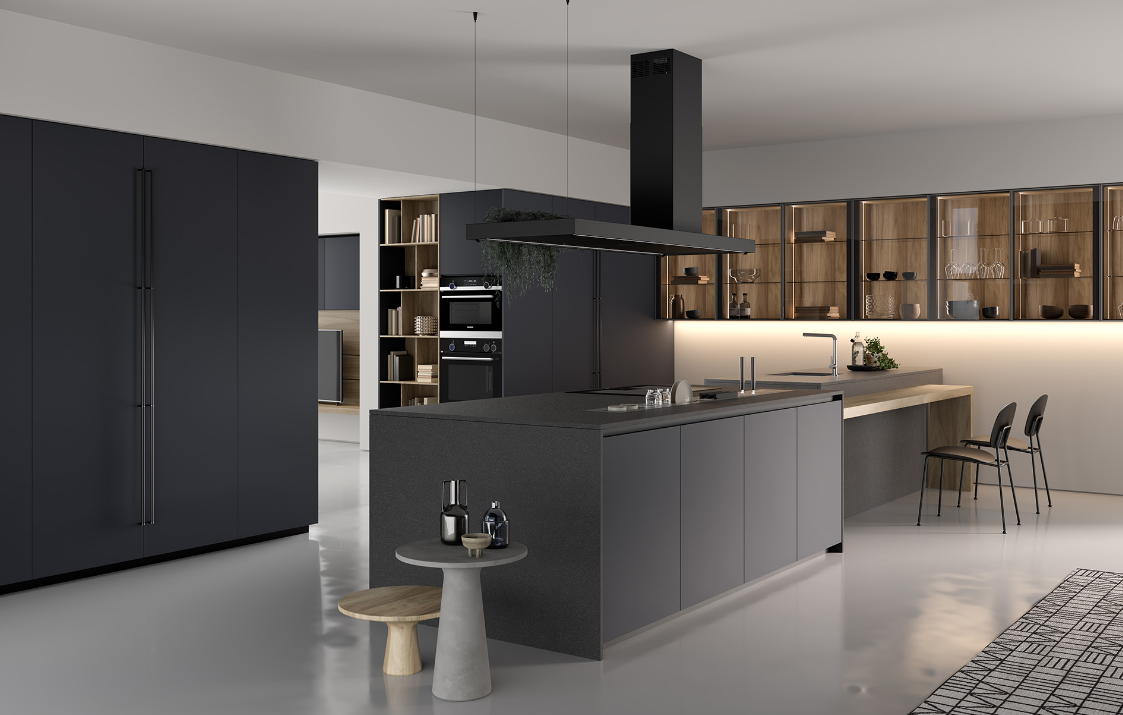
- Surface Finishes and Color Trends
Black metal, brushed copper, and matte finishes are trending. These finishes combine aesthetics with practicality—they are resistant to fingerprints and easy to clean. In high-traffic commercial kitchens or frequently used residential spaces, durability is especially important.
- Creative and Smart Integration
Many modern handles and drawer systems now incorporate smart features, such as LED indicators or soft-close mechanisms. These innovations enhance usability while adding a modern, tech-forward touch, particularly valuable for high-end projects.
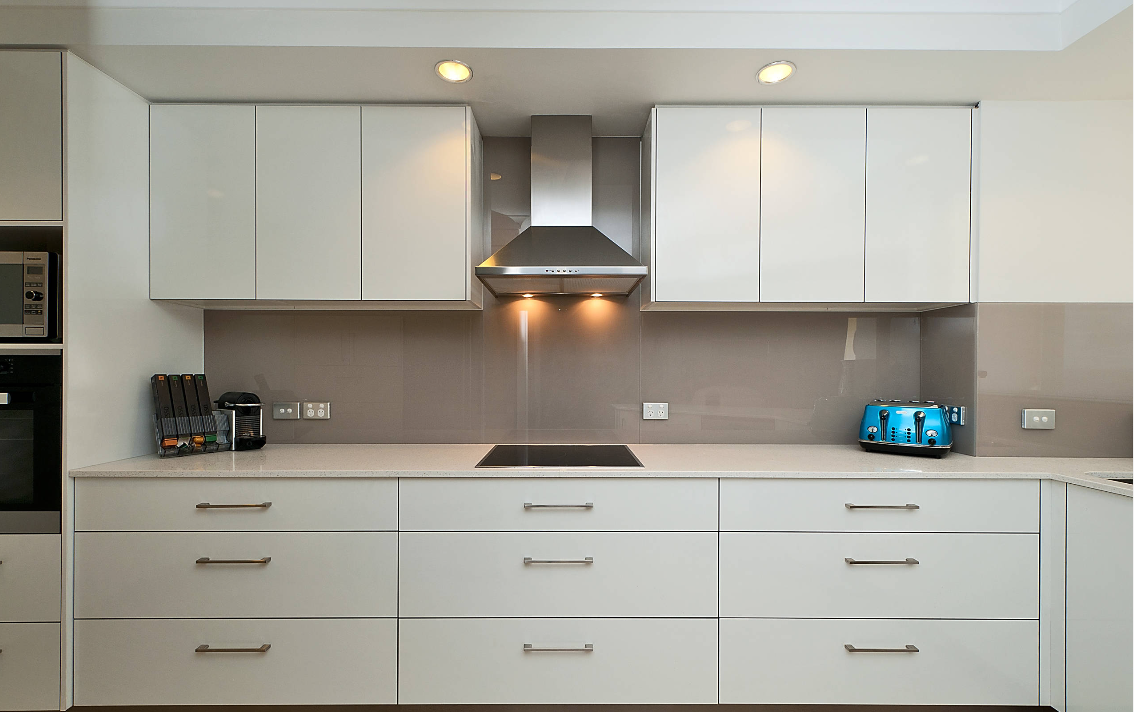
2. Functional Innovations
As kitchen operations become more complex, hardware functionality is a critical factor:
- Soft-Close and Silent Drawer Slides
These features minimize noise and reduce cabinet wear, enhancing comfort in high-use environments.
- Multi-Functional Handles
Some handles serve dual purposes, acting as hooks, tray holders, or additional storage aids, which save space and streamline kitchen workflows, especially in commercial kitchens.
- Adjustable Hardware
Adjustable hardware can accommodate varying door and drawer thicknesses, offering flexibility during installation and future maintenance, which is vital for large-scale projects.
3. Design and User Experience Connection
Hardware design must align with the kitchen’s overall style:
- Minimalist and modern cabinets often pair with concealed or linear handles for a uniform, clean look.
- High-end or classic-style cabinets typically feature brass or brushed metal knobs, emphasizing premium detail.
- Functional innovations enhance both aesthetics and efficiency, improving operational experience.
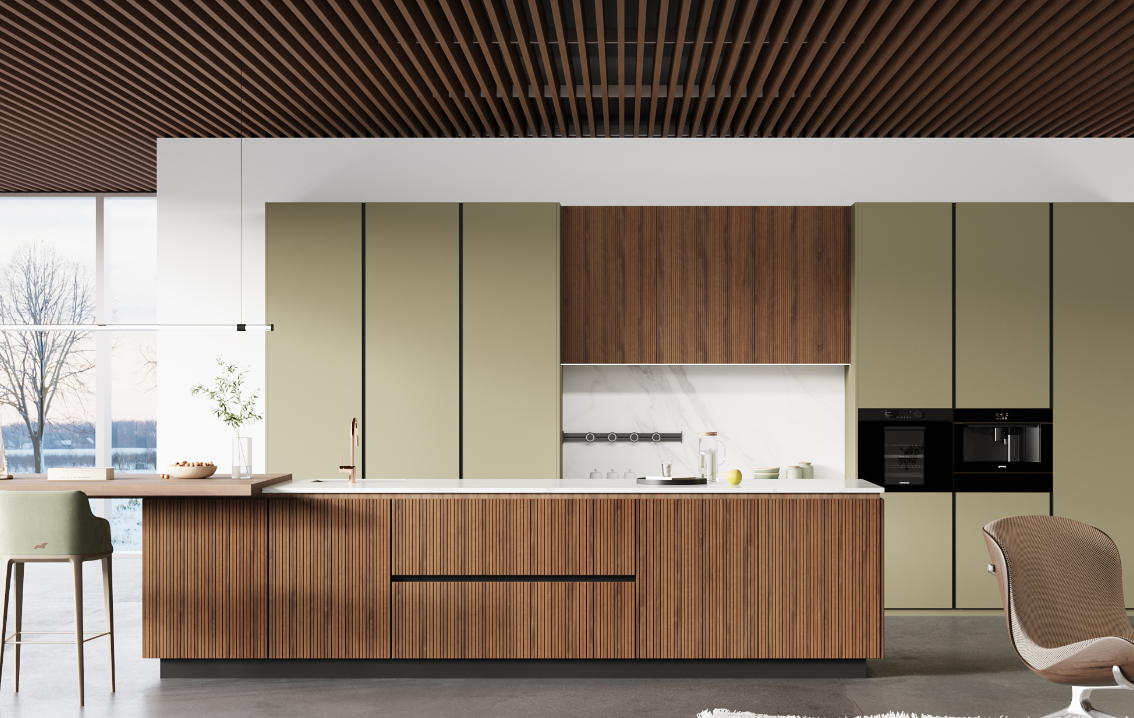
Materials and Durability of Kitchen Cabinet Hardware
Selecting appropriate materials ensures longevity, reduces maintenance costs, and maintains project quality.
1. Common Materials
| Material | Features | Ideal Application |
| Stainless Steel | Corrosion-resistant, moisture-proof, easy to clean | Commercial kitchens, humid environments |
| Aluminum Alloy | Lightweight, customizable surface finish, corrosion-resistant | Modular or custom cabinetry |
| Copper / Brass | Premium appearance, durable, corrosion-resistant | High-end residential or hotel kitchens |
| Alloy Steel | High strength, load-bearing capacity | Large drawers, hanging cabinet hardware |
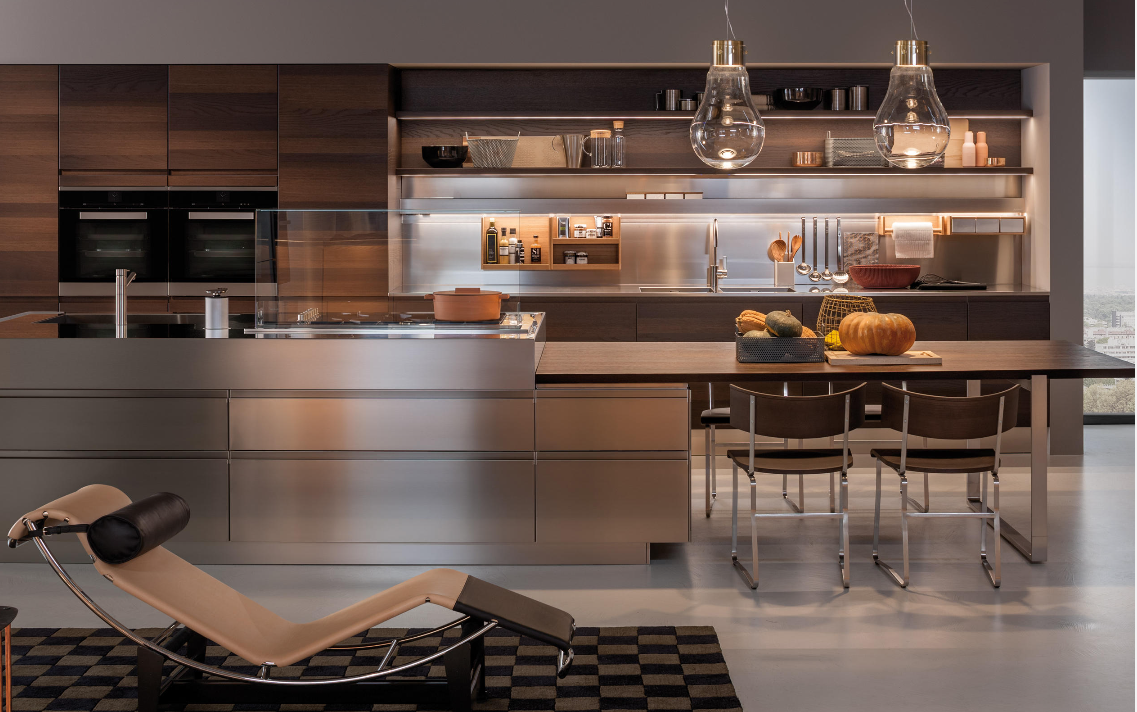
2. Surface Treatments
Surface treatments greatly influence long-term performance:
- Electroplating, Coating, Brushed, Painted Finishes
Enhance wear resistance, corrosion resistance, and tactile quality.
- Fingerprint-Resistant, Non-Slip, Easy-to-Clean
Reduces maintenance frequency, essential for kitchens with heavy usage.
3. Environmental and Health Considerations
- Low VOC Coatings: Reduce harmful chemical emissions, complying with green building standards.
- Recyclable Metal Materials: Support sustainability, increasingly valued in commercial and residential projects.
Kitchen Cabinet Hardware Handles and Detailed Components
Hardware type and installation directly impact project execution and long-term usability.
1. Handle Types
- Bar Pulls
Easy to install, ideal for modern or minimalist kitchens. Long bar designs distribute force evenly and are highly durable.
- Knobs
Small and decorative, perfect for classic or mixed-style cabinets, emphasizing fine details.
- Concealed Pulls
Provide a clean, minimalist appearance, particularly suitable for premium or open kitchen designs.
2. Functional Design
- Soft-Close and Silent Slides
Reduce noise and wear, enhancing comfort in high-use environments.
- Multi-Functional Hardware
Handles that double as hooks or tray supports save space and optimize workflow, especially beneficial in commercial kitchens.
3. Size and Installation Considerations
- Hardware dimensions must match door thickness and cabinet depth to ensure stability.
- Modular hardware reduces installation complexity and construction time.
- Easy-to-maintain, replaceable hardware prolongs service life and minimizes project maintenance costs.
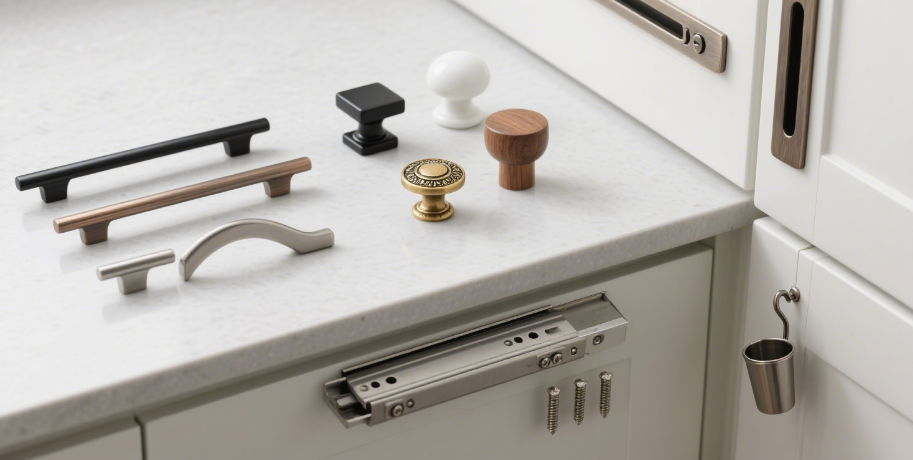
Future Trends and Innovations in Kitchen Cabinet Hardware
1. Smart Kitchen Hardware
Intelligent features are at the forefront of hardware innovation:
- Handles and Drawers with LED Indicators: Enhance visibility and operational safety.
- Automatic Opening and Closing Mechanisms: Provide high-tech convenience for premium residential, hotel, or commercial kitchens while reducing operational effort.
2. Advanced Customization and Modular Integration
- Customizable sizes, colors, and materials accommodate diverse project requirements.
- Modular designs improve installation efficiency and allow flexible maintenance, making project management more effective.
3. Sustainability
- Continued adoption of low VOC coatings and recyclable materials aligns with green kitchen initiatives and healthy living trends.
- For developers and contractors, sustainable materials reduce long-term maintenance and retrofit costs while complying with project environmental standards.
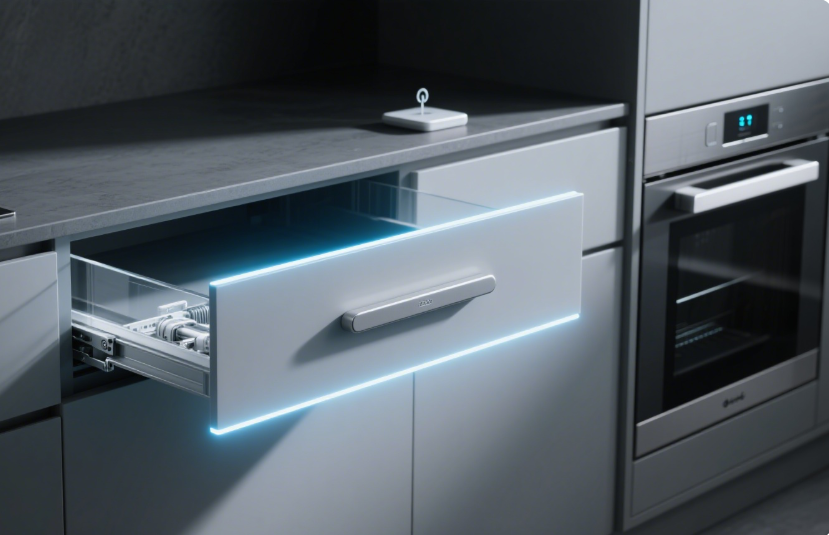
Key Selection Points for Kitchen Cabinet Hardware
Project selection should balance design, functionality, durability, and sustainability:
| Consideration | Recommended Strategy | Project Value |
| Design Style Match | Minimalist, modern, classic, or mixed styles; coordinate color and material | Enhance kitchen aesthetics and client satisfaction |
| Functionality and Durability | Soft-close, silent slides, multi-functional handles | Improve operational efficiency, extend hardware lifespan, reduce maintenance costs |
| Sustainable Materials | Low VOC coatings, recyclable metals | Comply with green building standards, enhance project quality |
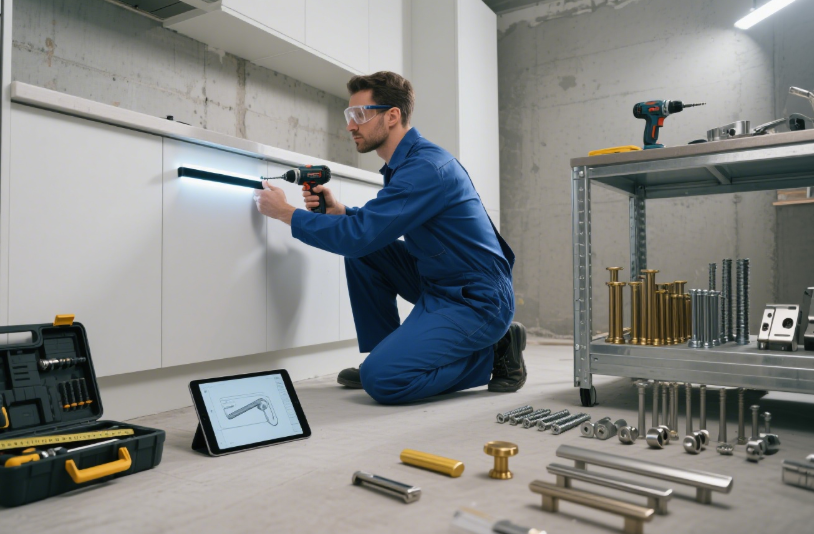
FAQ
Q1: How to choose handles and knobs for different kitchen styles?
A1: Select hardware that complements the cabinet’s overall style and color, choosing from bar pulls, knobs, or concealed pulls based on operational needs.
Q2:Which materials are best for humid or high-temperature kitchens?
A2: Stainless steel and aluminum alloys are preferred for their moisture and corrosion resistance.
Q3:What are the practical benefits of soft-close and silent slides?
A3: Reduce noise, extend the life of drawers and doors, and improve user comfort.
Q4: How do multi-functional hardware pieces improve kitchen efficiency?
A4: They can serve as hooks, tray supports, or storage aids, saving space and optimizing workflows.
Q5: What are the innovative applications of smart kitchen hardware?
A5: Handles and drawers with LED indicators or automatic opening/closing enhance convenience, safety, and interactivity.
Conclusion
Kitchen cabinet hardware is more than just a finishing detail—it defines how a kitchen performs over time. Selecting the right design, materials, and functional features from the start ensures durability, smooth daily operation, and long-term value for any project. By paying attention to innovation and quality during the design and installation stages, professionals can reduce maintenance costs, enhance user satisfaction, and deliver kitchens that stand the test of time.


